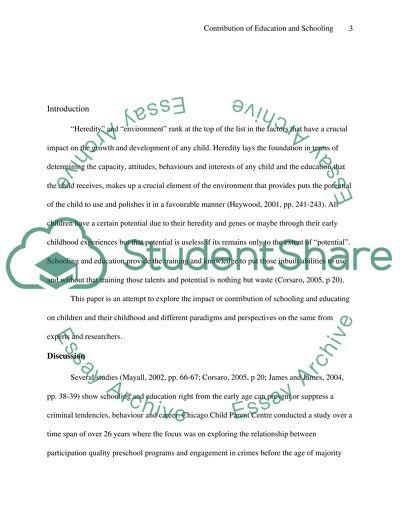Cite this document
(“Contribution of Education and Schooling Essay Example | Topics and Well Written Essays - 3000 words”, n.d.)
Retrieved from https://studentshare.org/sociology/1441386-critically-assess-the-contribution-made-by
Retrieved from https://studentshare.org/sociology/1441386-critically-assess-the-contribution-made-by
(Contribution of Education and Schooling Essay Example | Topics and Well Written Essays - 3000 Words)
https://studentshare.org/sociology/1441386-critically-assess-the-contribution-made-by.
https://studentshare.org/sociology/1441386-critically-assess-the-contribution-made-by.
“Contribution of Education and Schooling Essay Example | Topics and Well Written Essays - 3000 Words”, n.d. https://studentshare.org/sociology/1441386-critically-assess-the-contribution-made-by.


